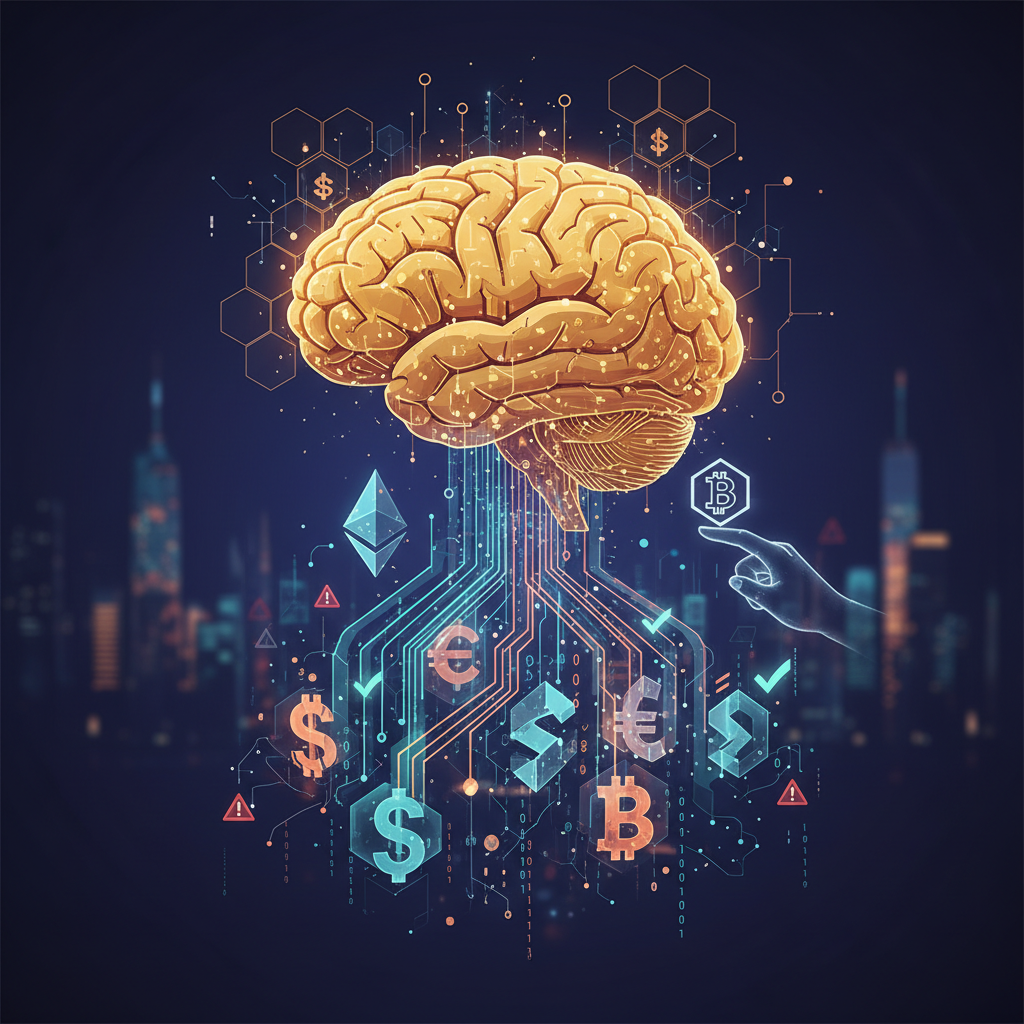Artificial Intelligence Ethics in the Crypto World: Navigating Challenges and Responsibility

The rapidly evolving crypto industry is constantly seeking new tools to optimize processes, analyze markets, and make investment decisions. One of the most powerful such tools is artificial intelligence (AI). However, the integration of AI into the crypto sphere carries not only immense potential but also a series of ethical challenges that require careful consideration. In this article, we delve into the nuances of AI ethics in the context of blockchain, examining issues of bias, transparency, accountability, and the need for clear AI regulations.
Potential Biases in Crypto Industry AI Algorithms
Artificial intelligence learns from data, and if that data contains biases, AI algorithms will reflect them. In the crypto world, this can manifest in several aspects:
- Bias in Trading Algorithms: AI trained on historical data that may reflect discriminatory practices or specific market anomalies can make unsound trading decisions that harm certain user groups or even contribute to market manipulation.
- Discrimination in Investment Decisions: AI analyzing data about projects or investors may unintentionally favor certain projects over others based on biased characteristics unrelated to fundamental value.
- Bias in Risk Management Systems: Algorithms assessing credit or security risks may be unfair to certain users if their data was collected or interpreted with bias.
A key requirement to overcome these issues is a critical approach to training data formation and continuous auditing of algorithms for bias. It is important to strive for maximum transparency in the development process.
Transparency and Explainability of AI Operations
One of the most complex challenges in the field of artificial intelligence, especially in complex systems like those used in crypto, is achieving transparency. Many modern AI models, particularly deep neural networks, operate on a 'black box' principle, making it difficult to understand how decisions are made.
“The lack of transparency in AI algorithms can lead to a loss of trust from users and regulators, creating barriers to the widespread adoption of these technologies in blockchain projects.”
In the crypto world, where trust and security are paramount, the 'black box' problem is particularly acute. When AI makes decisions about fund allocation, price prediction, or portfolio management, users have the right to know the basis for these decisions. The development of 'Explainable AI' (XAI) becomes extremely important.
Responsibility for AI System Errors
Who bears responsibility when an AI-based system makes an error that leads to financial losses or other negative consequences? This question is central to AI ethics. In the crypto industry, where transaction speeds and the amounts of funds can be astronomical, errors can have catastrophic consequences.
- Developers: Do they bear responsibility for code errors or for erroneous conclusions made by AI due to incorrect training?
- Users: Should users understand the limitations of the AI tools they use?
- Implementing Companies: Are companies that integrate AI into their products responsible for the consequences of its operation?
AI regulation should clearly define the framework of responsibility. This requires creating mechanisms for auditing, verification, and, if necessary, compensation for damages caused by AI systems. It is important for blockchain projects using AI to have clear responsibility policies.
Ensuring Fairness and Accountability
For AI solutions in the crypto world to be fair and accountable, the following practices must be implemented:
- Data Diversity: Using diverse and representative data for AI training.
- Regular Audits: Continuous checking of algorithms for biases and errors.
- Feedback Mechanisms: Creating channels through which users can report problems or incorrect AI operation.
- Human Oversight: Ensuring the possibility of human intervention in critical decisions made by AI.
- Standardization: Developing industry standards for AI ethics and its application in crypto.
Artificial intelligence can be an incredibly valuable tool for market analysis, trend forecasting, and risk management in the crypto industry. However, without proper attention to ethical aspects, its potential can be significantly limited, and the risks irreparable.
The Need for AI Regulation and Ethical Norms
Effective AI regulation is key to the sustainable development of the crypto world. Regulators, developers, and market participants must work together to establish clear ethical norms and standards. This includes:
- Transparency in Development: Requirements for documentation and explainability of algorithms.
- Accountability: Establishing clear legal frameworks for responsibility.
- Data Protection: Guarantees of confidentiality and security for data used by AI.
- Prevention of Manipulation: Mechanisms for detecting and countering the use of AI for market manipulation.
Blockchain technologies, by their nature, strive for decentralization and transparency. The integration of AI into this ecosystem must align with these principles. Only through diligent adherence to AI ethics and the implementation of appropriate AI regulation can we fully unlock the potential of artificial intelligence in the crypto world, ensuring its fairness, security, and accountability.